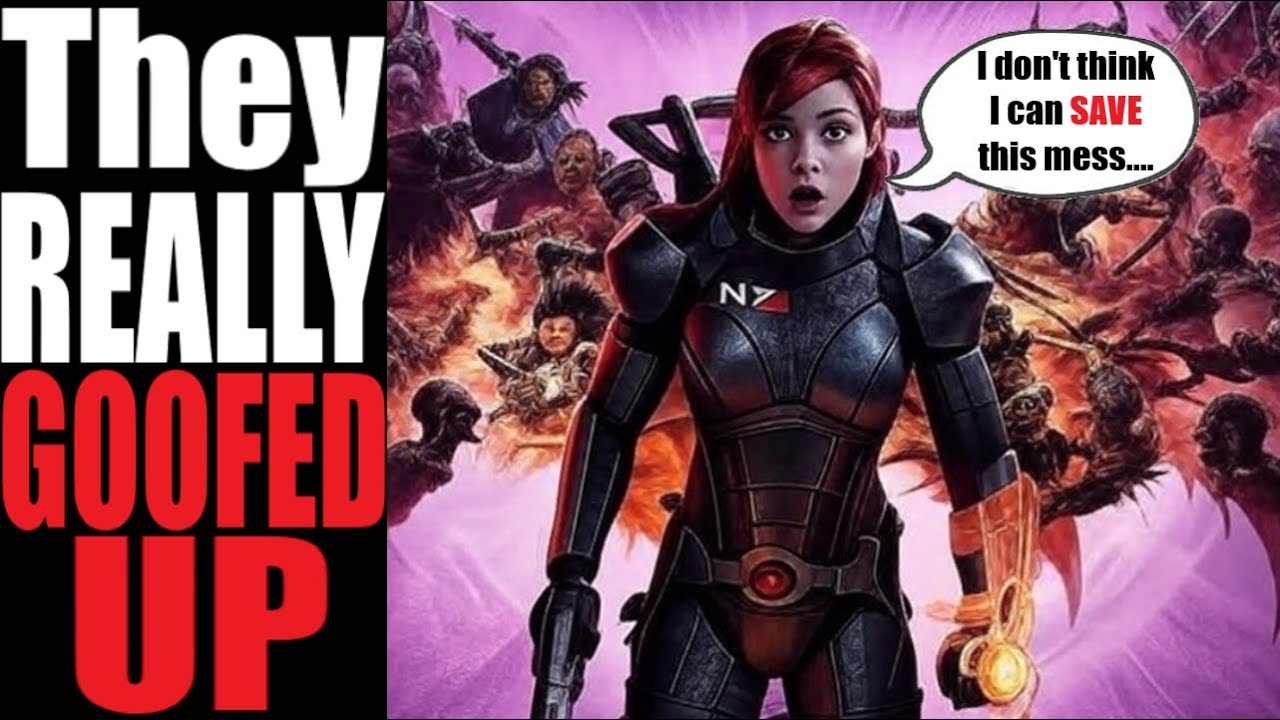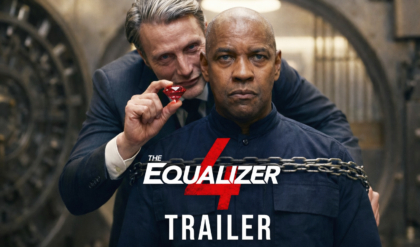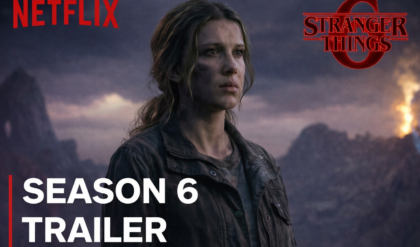Dragon Age: The Veilguard Backlash and Mass Effect 5 Hopes
The gaming world is reeling from a fiery controversy surrounding Dragon Age: The Veilguard, BioWare’s long-awaited RPG that launched in October 2024 but fell short of expectations, selling only 1.5 million copies against a projected 3 million. Amid the fallout, actress Alix Wilton Regan, known for voicing the Inquisitor in Dragon Age: Inquisition and a role in The Veilguard, has stirred the pot by claiming fans “wanted BioWare to fail,” likening their harsh criticism to bullying. Social media is ablaze, with some fans decrying her as out of touch, while others see Mass Effect 5 as the studio’s last hope to reclaim its glory, with whispers that it could “vindicate” BioWare’s legacy. Yet, no evidence ties Regan to such a claim about Mass Effect 5, leaving the rumor as speculative as the game’s release date. As BioWare downsizes and pivots to its sci-fi saga, this saga of fan fury, studio struggles, and lofty expectations reveals a franchise at a crossroads.

The Actress’s Outcry
Alix Wilton Regan’s comments came in a May 2025 interview, where she expressed heartbreak over The Veilguard’s mixed reception. She argued that the backlash wasn’t rooted in the game’s quality but in a premeditated desire by some fans to see BioWare falter. Her remarks, shared widely on X, suggested that critics judged the game based on visuals or pre-release biases, not its story or mechanics. The actress, a series veteran, stood by the creative team, lamenting the toll on a studio she “adores.” While she didn’t explicitly call fans “bullies,” the framing of their criticism as malicious intent sparked accusations that she was blaming players for the game’s struggles.
The reaction was swift and polarized. On X, some fans rejected her claims, arguing that their critiques—of the game’s lighter tone, simplified RPG mechanics, or departure from Dragon Age’s dark fantasy roots—were legitimate. Others labeled her “devastated” response as tone-deaf, with one post dismissing it as “woke” whining. However, supporters rallied to her side, pointing to toxic fandom trends where developers face harassment over creative choices. The debate echoed broader gaming culture clashes, with The Veilguard’s inclusive elements, like pansexual companions, fueling review bombing that tanked its Rotten Tomatoes Popcornmeter to 39%.
Dragon Age: The Veilguard’s Troubled Launch
The Veilguard, the fourth mainline Dragon Age title, was a decade in the making, following Inquisition’s 2014 success. Set in Thedas, players control Rook, a customizable hero, in a quest to stop the elven god Solas from tearing down the Veil, the barrier between physical and spiritual realms. The game leaned into action-RPG combat, vibrant visuals, and a lighter narrative, departing from the series’ gritty origins. Critics gave it a 79/100 on OpenCritic, praising its polished mechanics and environments, but fans were divided, criticizing its pacing, writing, and lack of legacy choices from prior games.
The game’s commercial performance was a blow. EA expected 3 million players but saw only 1.5 million, a 50% shortfall that led to no planned DLC—a first for the series, which had beloved expansions like Awakening and Trespasser. The launch, marred by a peak of 89,000 Steam players but no major Game Awards nominations, was overshadowed by review bombing targeting its “woke” elements, such as Ellie’s romance with Dina. Former developer Mark Darrah noted the team felt “jerked around” by EA’s disinterest early on, with the game rebooting twice from a live-service model, leaving a fragmented product.
BioWare’s Restructuring and Layoffs
The underperformance triggered seismic changes at BioWare. In January 2025, the studio downsized to under 100 employees, reassigning some to EA projects like Iron Man and Skate, while laying off others, including lead writer Trick Weekes, editor Karin West-Weekes, and narrative designer Ryan Cormier. General manager Gary McKay framed the shift as a move to focus “entirely” on Mass Effect 5, led by veterans like Michael Gamble. The layoffs, kept quiet by EA, drew backlash for their opacity, with Weekes, a 20-year BioWare veteran, sharing on Bluesky their search for new work after writing iconic characters like Solas and Tali.
The restructuring has left Dragon Age’s future uncertain. Former writer Sheryl Chee told fans the series lives on through their art and fiction, a bittersweet nod to its dormancy. EA CEO Andrew Wilson attributed The Veilguard’s struggles to the lack of a “shared world,” doubling down on live-service models despite the failure of BioWare’s Anthem in 2019. Fans on X decried this as tone-deaf, arguing that Dragon Age thrives as a single-player RPG, not a Fortnite clone. The studio’s pivot to Mass Effect 5 signals a make-or-break moment, with BioWare’s legacy hanging in the balance.
The Mass Effect 5 Hope
Rumors that Mass Effect 5 will “vindicate” BioWare stem from fan and industry speculation, not Regan’s remarks. The sci-fi RPG, announced in 2020, is in pre-production under Gamble, promising a photorealistic style and the mature tone of the original trilogy (Mass Effect 1-3). Unlike The Veilguard’s stylized visuals, which some likened to Pixar, Mass Effect 5 will stick to its cinematic roots, with Gamble reassuring fans it “won’t be Dragon Age.” Teasers hint at Liara T’Soni’s return and a possible canonization of the trilogy’s Destroy ending, sparking debate over player choice.
The game’s stakes are high. BioWare’s recent track record—Anthem’s flop, Mass Effect: Andromeda’s lukewarm reception, and The Veilguard’s underperformance—has eroded its once-stellar reputation, built on Origins and Mass Effect 2. With fewer than 100 staff and no full development yet, Mass Effect 5 faces scrutiny, especially as EA pushes live-service elements that clash with RPG fans’ desires. Former developer David Gaider revealed tensions between Dragon Age and Mass Effect teams, suggesting cultural divides that could hinder cohesion. Yet, fans on X remain hopeful, with one post calling it “BioWare’s last shot at redemption,” banking on Gamble’s vision and the trilogy’s veterans.
The Bullying Debate
Regan’s claim that fans “wanted BioWare to fail” has reignited discussions about fandom toxicity. She pointed to pre-release attacks on The Veilguard’s art style and inclusivity, a sentiment echoed by Darrah, who criticized “anti-fans” who revel in studio failures. The game’s ban in the Middle East over its pansexual companions and review bombing reflect a vocal minority’s hostility, often targeting developers personally. However, fans argue their criticisms—of rushed writing or lore inconsistencies—are valid feedback, not malice. The backlash against Regan, with some calling her comments “gaslighting,” underscores the disconnect between creators and players.
Gaming culture has grown increasingly polarized, with The Veilguard joining titles like The Last of Us Part II in facing ideological battles. While harassment is indefensible, dismissing all criticism as bullying risks alienating loyal fans who waited a decade for Dragon Age’s return. BioWare’s history of engaging fans through blogs and transparency, as seen pre-Veilguard, could bridge this gap, but the studio’s silence amid layoffs has deepened mistrust.
The Road Ahead
Mass Effect 5 is BioWare’s sole focus, but its early stage—still in pre-production as of 2025—means a release is likely years away, possibly 2027 or later. N7 Day 2024 offered little beyond a teaser, and with The Veilguard’s team gutted, including director Corinne Busche’s departure, BioWare faces a lean operation. EA’s live-service push, despite Anthem’s lessons, threatens to derail the RPG purity fans crave, as Wilson’s comments about The Veilguard’s failure suggest a misread of player desires. X posts urge BioWare to emulate Baldur’s Gate 3’s ambition, not chase Fortnite’s model.
For Dragon Age, the outlook is grim. With no DLC and the IP “effectively dead” per some insiders, fans may rely on community creations to keep Thedas alive. Regan’s defense of BioWare, while heartfelt, hasn’t quelled the storm, and her rumored link to Mass Effect 5’s “vindication” is baseless. The studio’s survival hinges on delivering a Mass Effect that recaptures the trilogy’s magic, but with a skeleton crew and EA’s priorities, the odds are daunting. As fans await news, possibly at N7 Day 2025, the saga of BioWare’s fall and hoped-for rise continues to grip the gaming world.
A Fandom at Odds
The Dragon Age: The Veilguard controversy, sparked by Regan’s claim of fan-driven sabotage, exposes a fractured fandom and a studio in crisis. Her plea for BioWare’s team, while rooted in loyalty, has deepened divides, with no evidence tying her to Mass Effect 5’s supposed redemption. As BioWare bets its future on a galaxy far away, the wounds of The Veilguard linger, a reminder that even legendary studios must earn their fans’ trust. Dive into the drama, weigh the hope and heartbreak, and see why this gaming saga has everyone buzzing.





